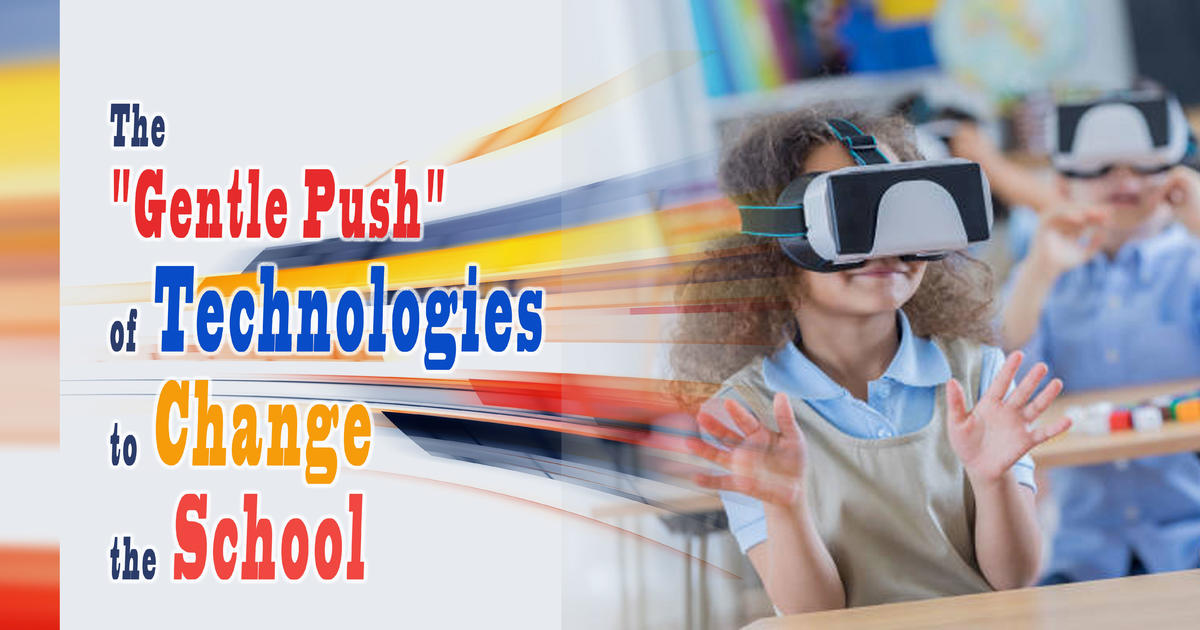The "Gentle Push" of Technologies to Change the School
A special issue of Education Sciences (ISSN 2227-7102).
Deadline for manuscript submissions: closed (30 September 2023) | Viewed by 3861

Special Issue Editors
Interests: small and rural school; hybrid environment for education; emergency in education
Special Issue Information
Dear Colleagues,
The idea of a Special Issue on the "gentle push" of technologies to change the school stems from the awareness that, as underlined by Thaler and Sunstein in the economic field, even in the educational context a nudge is needed that helps to change daily practices by enhancing what that the technological sector today makes available.
This Special Issue aims to understand how technologies can help give strength to the practices put in place by pedagogy during the pandemic, rethinking them not only as adaptive actions to respond to an emergency, but to understand how it is possible to guarantee a leapfrog of didactic innovation that gives voice to hermeneutics of the present and the future (Giroux, 2021). A dichotomous reading of the role of technologies (analog/digital; real/virtual) prevents us from grasping the complex nature of hybrid learning environments.
Once the storm of the pandemic has passed (at least in its most evident social aspects), the widespread conceptualization of technologies in education still appears generally short-sighted. The web, the ubi consistam of the vast majority of educational interactions in the pandemic period, still retains, in the common view, an accessory character, an optional extension of “material reality”. Such a conceptualization seems inadequate to metabolize the changes of rhythms, patterns, and proportions that the new generation of technologies inevitably implies. The risk that the educating community runs, in this condition, is to find itself once again undergoing the process of change.
In this perspective, it is necessary to deconstruct some of the key words that have characterized and are characterizing the visions of the school of the future promoted by the OECD and hypothesize the scenarios that can become part of a new school grammar, starting from a framework whose conceptual perimeter is formed by the process of perception, action and didactic interaction (Berthoz, Sibilio), by the conceptualization of teaching as Design Science (Laurillard, Rivoltella) and by the recognition that digital environments (web, metaverse) are places of construction of reality social.
The fields of application are potentially unlimited, but our attention goes mainly to the need to enhance the educational offer in contexts of poverty, isolation (home schooling, school in hospital, “disconnected” realities), and characterized by situations of social crisis and territorial emergency.
Topics:
- Metaverse/Metawelt;
- Hybrid environments for home schooling and hospitals;
- Technologies for educational continuity in peripheral territories;
- Solutions for social and educational inclusion;
- Technologies in disciplinary didactic innovation.
We look forward to receiving your contributions.
Dr. Giuseppina Rita Mangione
Prof. Dr. Pio Alfredo Di Tore
Guest Editors
Manuscript Submission Information
Manuscripts should be submitted online at www.mdpi.com by registering and logging in to this website. Once you are registered, click here to go to the submission form. Manuscripts can be submitted until the deadline. All submissions that pass pre-check are peer-reviewed. Accepted papers will be published continuously in the journal (as soon as accepted) and will be listed together on the special issue website. Research articles, review articles as well as short communications are invited. For planned papers, a title and short abstract (about 100 words) can be sent to the Editorial Office for announcement on this website.
Submitted manuscripts should not have been published previously, nor be under consideration for publication elsewhere (except conference proceedings papers). All manuscripts are thoroughly refereed through a double-blind peer-review process. A guide for authors and other relevant information for submission of manuscripts is available on the Instructions for Authors page. Education Sciences is an international peer-reviewed open access monthly journal published by MDPI.
Please visit the Instructions for Authors page before submitting a manuscript. The Article Processing Charge (APC) for publication in this open access journal is 1800 CHF (Swiss Francs). Submitted papers should be well formatted and use good English. Authors may use MDPI's English editing service prior to publication or during author revisions.





